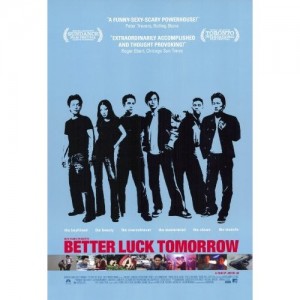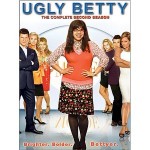 By Jae-Ha Kim
By Jae-Ha Kim
Chicago Sun-Times
April 10, 2003
When funding ran low for “Better Luck Tomorrow,” filmmaker Justin Lin called on an unlikely resource to help: MC Hammer.
Yup. It was Hammer time.
“I had met him in Vegas when I was working on the script,” says Lin, 31. “He was really nice and offered to help. I called and said, ‘Hi, remember me?’ He couldn’t have been nicer. He wired me a decent amount of money within two hours.”
Hammer did it in a very un-Hollywood way, too. No lawyers, contracts or percentage points.
“There were a lot more people who had a lot more money than him who just squeezed me for every penny,” says Lin. “But Hammer said, ‘I trust you. If you run away with the money, that’s your thing. I’m not worried.’ ”
Hammer has since been reimbursed and now is associated with Lin’s superb film, which opens Friday.
A favorite at the Sundance Film Festival, the clever drama has been getting the thumbs up from critics nationwide. Highlighting a predominantly
Asian-American cast, the film isn’t about Asian Americans. Rather, it’s about a group of high school overachievers who’re victims of their own greed
and boredom. What they do has less to do with their race than their morals–or lack thereof.
After a screening at Sundance, one enraged audience member asked, “Don’t you have a responsibility to paint a more positive and helpful portrait of your community?”
Sun-Times film critic Roger Ebert replied to the man–who was white–that what he found offensive and condescending is “nobody would say to a bunch of white filmmakers, ‘How could you do this to your people?’ This film has the right to be about these people, and Asian-American characters have the right to be whoever they want to be.”
“Roger put everything into perspective,” Lin says. “Hopefully we can redefine what positive is. I heard that Denzel [Washington] was getting flack for ‘Training Day.’ A lot of people misconstrue positive for noble, flawless people. It would only be negative if these characters were only one-dimensional caricatures. That’s doing a disservice to everyone.”
When Lin was putting together the cast for “Better Luck Tomorrow,” he was impressed by Jason Tobin, who would go on to play one of the pivotal characters in his film. Lin found it ironic that because of his looks, this Eurasian actor had spent most of his time on film delivering Chinese food.
In an unlucky twist of fate, Tobin–who grew up in Hong Kong and Great Britain–forgot to renew his visa and was deported from the United States.
“Better Luck Tomorrow” isn’t an easy film to peg. Western audiences aren’t accustomed to Asian-American actors in non-martial arts films.
Paramount Pictures and MTV Films worked in conjunction to release this film.
In an effort to capture the same teen audience that went for “Permanent Record,” “Bring It On” and “American Pie,” MTV has been airing ads that focus on Karin Anna Cheung, the comely female lead who has less screen time than any of the male leads. Is it misleading? Yes. But the tactic will probably attract more moviegoers than a montage of the men–the most famous of whom is Jerry Mathers (yes, the Beaver).
“I’m not sure how this film will do, but it’s one that was very important for me to make,” says Lin. “Every morning I woke up thinking, ‘This could be your last film.’ It became very clear to me that if it was, I was glad it was ‘Better Luck Tomorrow.’ The issues were very important to me.”





